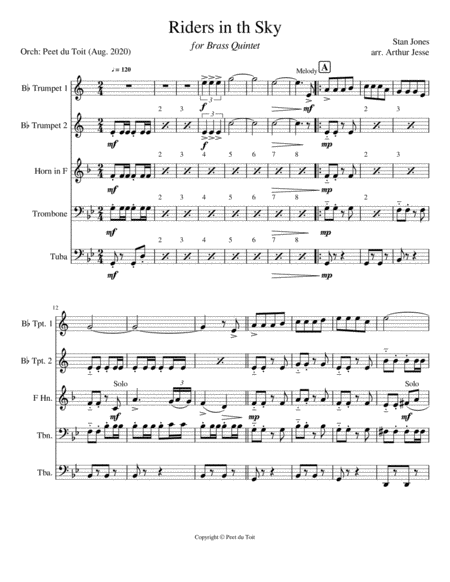Brass Ensemble Horn,Trombone,Trumpet,Tuba - Level 3 - Digital Download SKU: A0.802616 By Johnny Cash. By Stan Jones. Arranged by Arthur Jesse & Peet du Toit. Contemporary. Score and parts. 9 pages. Peet du Toit #6023995. Published by Peet du Toit (A0.802616). The song tells a folk tale of a cowboy who has a vision of red-eyed, steel-hooved cattle thundering across the sky, being chased by the spirits of damned cowboys. One warns him that if he does not change his ways, he will be doomed to join them, forever trying to catch the Devil's herd across these endless skies. The story has been linked with old European myths of the Wild Hunt, in which a supernatural group of hunters passes the narrator in wild pursuit.Stan Jones stated that he had been told the story when he was 12 years old by an old Native American who resided north-east of the Douglas, Arizona border town, a few miles behind D Hill, north of Agua Prieta, Sonora. The Native Americans, possibly Apache, who lived within Cochise County, believed that when souls vacate their physical bodies, they reside as spirits in the sky, resembling ghost riders. He related this story to Wayne Hester, a boyhood friend (later owner of the Douglas Cable Company). As both boys were looking at the clouds, Stan shared what the old Native American had told him, looking in amazement as the cloudy shapes were identified as the ghost riders that years later, would be transposed into lyrics. The melody is based on the song When Johnny Comes Marching Home.
